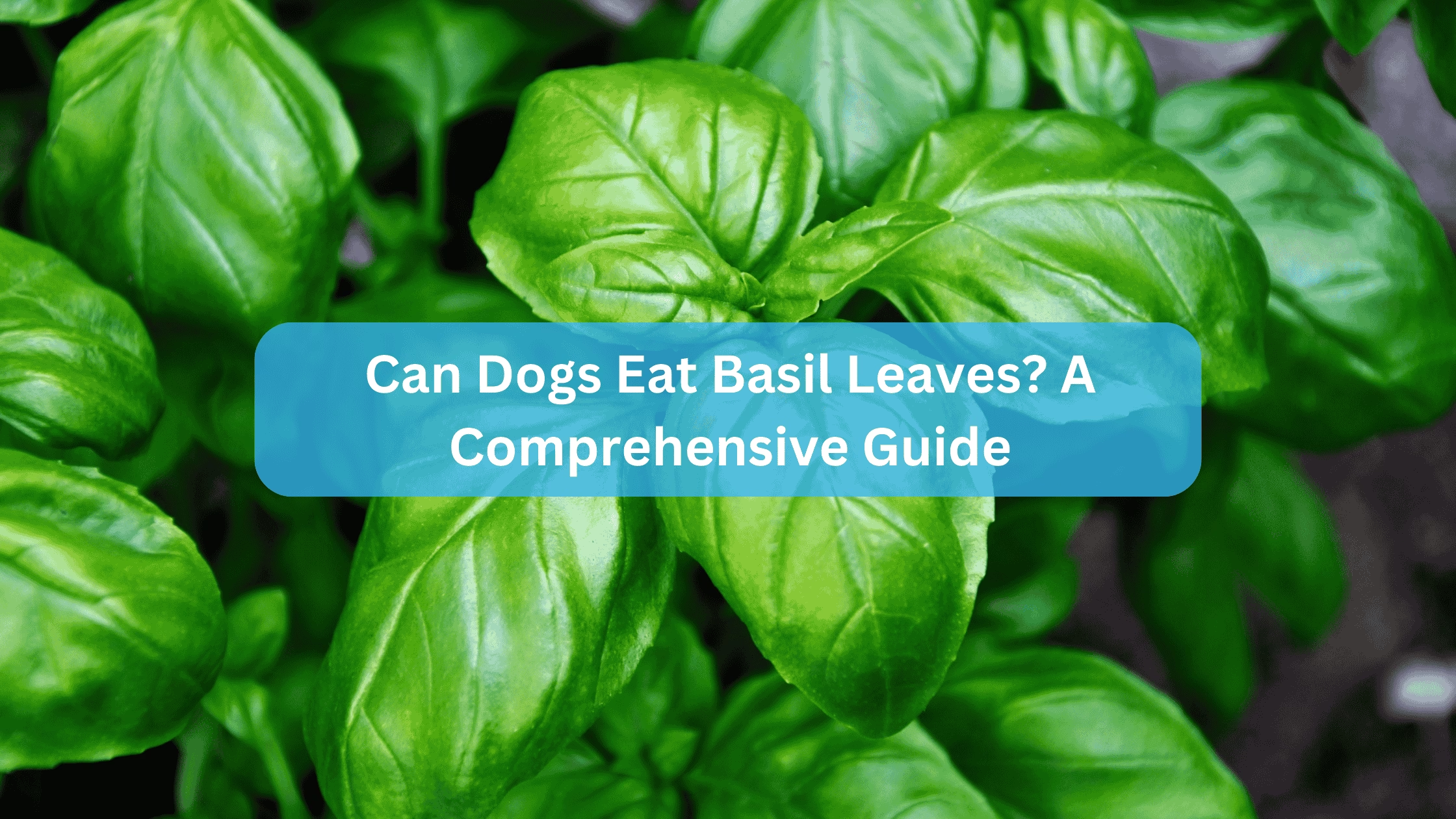Can dogs eat basil leaves? This question often arises among pet owners who are curious about incorporating fresh herbs into their dog’s diet.
Basil, a popular culinary herb, is known for its aromatic flavor and numerous health benefits for humans. But what about our canine companions?
In this comprehensive guide, we will explore whether basil is safe for dogs, its potential health benefits, how to incorporate it into your dog’s meals, and any precautions you should take.
Understanding Basil
Basil (Ocimum basilicum) is a member of the mint family and is native to tropical regions. It is widely used in various cuisines, particularly Mediterranean and Asian dishes.
Basil is rich in vitamins and antioxidants, making it a popular choice not just for flavoring food but also for its potential health benefits.
Nutritional Profile of Basil
Basil contains several essential nutrients that can be beneficial for dogs:
- Vitamins: High in vitamins A, K, C, and B6.
- Minerals: Good source of calcium, iron, magnesium, and potassium.
- Antioxidants: Contains compounds that help combat oxidative stress and inflammation.
These nutrients contribute to overall health and may offer specific benefits for dogs.
Health Benefits of Basil for Dogs
1. Anti-Inflammatory Properties
Basil has anti-inflammatory properties that may help alleviate conditions like arthritis in dogs. Regular consumption can reduce pain and discomfort associated with inflammation.
2. Antioxidant Effects
The antioxidants found in basil can help protect your dog’s cells from damage caused by free radicals. This protection may reduce the risk of chronic diseases, including cancer.
3. Digestive Health
Basil contains compounds that may aid digestion and relieve gastrointestinal upset. It can be particularly beneficial for dogs experiencing digestive issues.
4. Stress Relief
Some studies suggest that basil may have calming effects due to its adaptogenic properties. This can be useful for dogs that experience anxiety or stress.
5. Blood Sugar Regulation
Preliminary research indicates that basil might help regulate blood sugar levels in dogs, making it a potential dietary addition for diabetic pets.
Is Basil Safe for Dogs?
The short answer is yes—basil is safe for dogs when offered in moderation. Both fresh and dried basil are non-toxic to canines. However, there are some important considerations:
- Moderation is Key: While basil offers health benefits, it should not constitute a large part of your dog’s diet. A small amount as a supplement or treat is sufficient.
- Watch for Allergies: Some dogs may have allergies or sensitivities to herbs. Introduce basil gradually and monitor for any adverse reactions.
- Avoid Processed Foods: While basil itself is safe, many basil-based foods (like pesto) contain ingredients such as garlic or onions that are harmful to dogs.
How to Safely Give Basil to Your Dog
If you’re considering adding basil to your dog’s diet, here are some practical tips:
1. Fresh vs. Dried Basil
Both forms are safe; however, fresh basil may retain more nutrients than dried varieties. You can sprinkle dried basil on top of your dog’s food or mix fresh chopped basil into their meals.
2. Portion Size
For a medium-sized dog, about one teaspoon of chopped fresh basil or a pinch of dried basil mixed into their food is generally sufficient. Adjust the amount based on your dog’s size.
3. Monitor Reactions
After introducing basil into your dog’s diet, watch for any signs of digestive upset or allergic reactions such as itching or gastrointestinal issues.
Common Questions About Basil and Dogs
Can Dogs Eat Basil Leaves?
Yes! Dogs can eat both fresh and dried basil leaves safely in moderation.
What Are the Benefits of Feeding Basil to Dogs?
Basil offers anti-inflammatory properties, antioxidants, digestive support, stress relief, and potential blood sugar regulation.
How Should I Prepare Basil for My Dog?
You can serve fresh or dried basil by mixing it into your dog’s regular food or offering it as a treat.
Are There Any Risks Associated with Feeding Basil to Dogs?
While generally safe, excessive amounts may cause digestive upset; also avoid processed foods containing harmful ingredients like garlic or onions.
Can Puppies Eat Basil?
Yes! Puppies can also enjoy small amounts of basil as long as they do not have any allergies or sensitivities.
Also Read: Can Dogs Eat Poppy Seeds? A Comprehensive Guide.
Also Read: Are Fruits Good for Dogs? A Comprehensive Guide.
Conclusion
In conclusion, the answer to “Can dogs eat basil leaves?” is a resounding yes! When introduced appropriately into your dog’s diet, basil can offer various health benefits without posing any significant risks.
Always keep moderation in mind and consult with your veterinarian before making any significant changes to your dog’s diet.
By understanding the nutritional value of herbs like basil alongside other safe fruits and vegetables, you can enhance your dog’s diet while ensuring they remain healthy and happy.
Remember that just because something is safe for humans doesn’t mean it’s suitable for dogs; always double-check before sharing food!
Sources:
- https://www.caninenutritionist.co.uk/natural-herbs-for-dogs/basil-for-dogs/
- https://www.rover.com/blog/can-my-dog-eat-basil/







